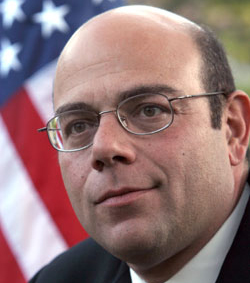BY GAREN YEGPARIAN
To no one’s astonishment, Nigol Pashinyan’s “My Step” alliance won big in the Republic of Armenia’s (RoA) first ever snap elections held on December 9, 2018. And, as cautiously hoped, the election was largely clean and free of fraud. Even the losing candidates/groups have not complained – this is probably the best news from the election!
Garnering 70.43% of the votes cast, Pashinyan has gotten the formal, electoral, mandate he needs to govern and implement the policies he deems best for the country. Only two other parties – Prosperous Armenia (at 8.27%) and Bright Armenia (at 6.37% and a breakaway from Pashinyan’s alliance) – managed to get enough votes to get past the minimum thresholds (5% for parties and 7% for alliances) to get seated in the National Assembly. That leaves eight parties and alliances which participated in this election out.
This had to happen so Pashinyan could have a full blown chance to prove himself. This is where things could go bad, since he seems to have drunk the neo-liberal kool-aid that has pummeled the West for a couple of decades, leading to a shrinking middle class. His pronouncements to date have been anti-ideological, reminiscent of the triumphalism about the “end of history” that was touted (at least in the U.S.) in the decade after the fall of the Soviet Union. According to this thinking, ideologies of all stripes were passé and we would all live happily ever after addressing only our needs based on policies that are deemed sensible at present.
This is why we must all be very attentive to what comes next and push for laws, policies, and programs rooted in the notion that government is a force for good (when subjected to eternal vigilance) and a laissez-faire approach to the country’s needs is at best ineffective, at the very least for the present time.
There are some other concerns being voiced. Perhaps chief among them is the size of Pashinyan’s parliamentary majority (because of the way the RoA parliament is constituted, it will have 132 members total this term, 27 more than the legal minimum) with 83, 26, and 18, respectively, seats going to the parties that made it in. Couple this with the fact that Bright Armenia’s political inclinations are much the same as My Step and Prosperous Armenia is not much more than one person’s political tool. The result is a parliament configured in such a way that there are unlikely to be voices challenging any bad ideas proposed by the government.
One thing that this election demonstrated yet again is how personality-based RoA elections are. Pashinyan’s coattails carried many people into parliament because he represented the “revolution”; that uprising represented people’s utter disgust with the preexisting system; therefore, if you wanted the revolution to continue/succeed, you had to vote for Pashinyan group, otherwise, you would be “opposing” the revolution – so seemed to go the logic behind voters’ preferences. This electoral affliction is a remnant of Soviet times. Instead of voting for ideas and policies, citizens have repeatedly voted for a “great leader” figure.
There are also analyses out there that effectively say “the voters are too dumb to know what’s good for them”. Even if this is true, making this point publicly, even if subtly, and thereby insulting and demeaning the electorate is no way to endear one’s alliance or party to those same voters whose support will be sought in the next election. Just remember the Clinton-Trump case. Hillary Clinton made a comment denigrating a segment of the public. She was already being portrayed as part of the “elite” by her opponent (who, ironically, really was and is part of the U.S. elite). The revulsion this bred led to some people voting for Trump just because they couldn’t stand Hillary Clinton!
I also took this opportunity to compile, from Wikipedia, the results of all the country-wide elections (parliamentary and presidential) held in the RoA since its 1991 re-Independence to see if any patterns popped out. The most obvious is the fluidity of the parties in the sense of their shortness of life. Most of those around in the 1990s no longer are. Most of them have participated in fewer than five of the 13 elections I checked (presidential elections with runoffs I am counting as just one). The most consistent participant has been the ARF at nine elections, which would have been ten had Levon Ter-Petrosian not banned the party for a few years. This should help convey to voters the earnestness of my party.
But, the news is not all good for the ARF. Judging by the percentages, its support increased from the early 1990s, peaking in the mid-2000s, then decreased back to the level it was originally at, roughly 4%. This should be fodder for discussion at out upcoming (January) World Congress. Clearly, we have not succeeded in conveying our good intentions and programs to the voters. Why that’s the case must be analyzed extensively, especially since we are not in parliament for the first time in two decades as a result.
Let’s celebrate this election, but be alert to any signs of upcoming problems.



















































